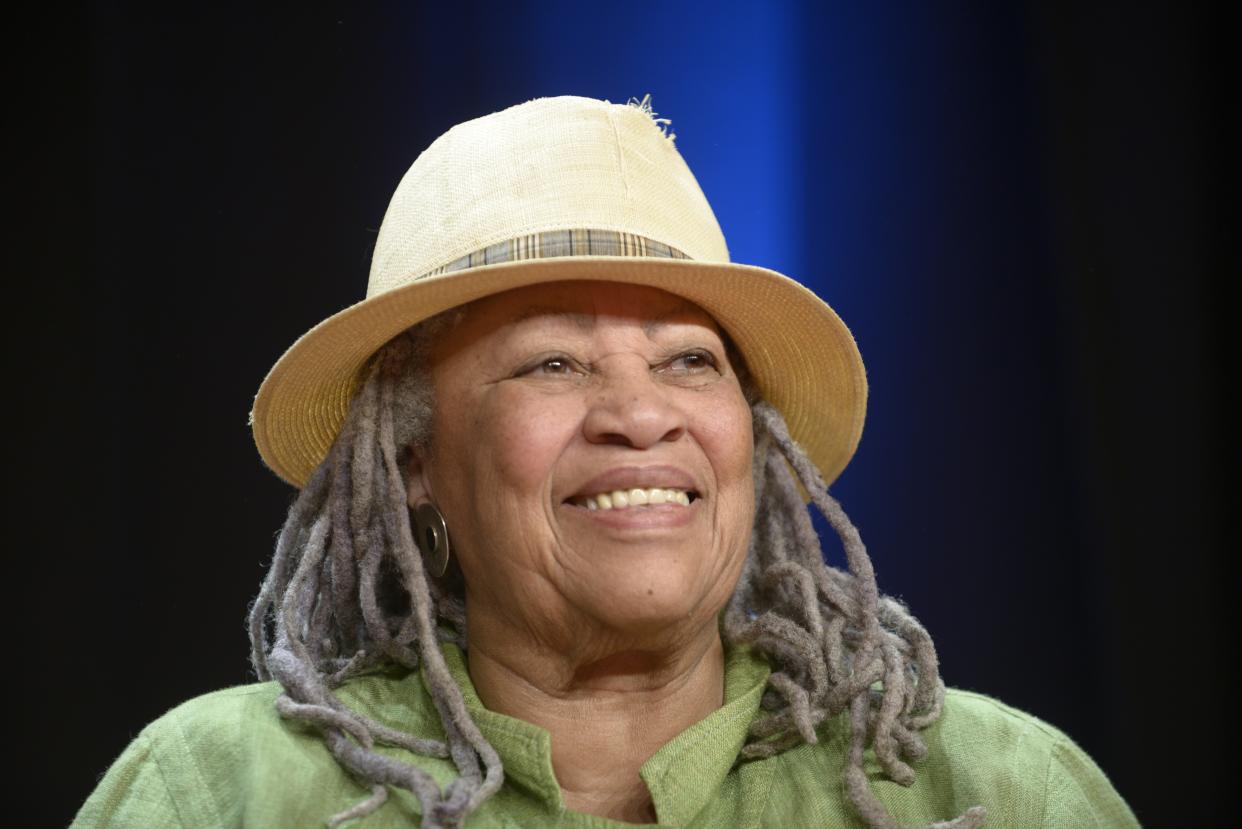Former student remembers class with Professor Toni Morrison: 'She implored us to do better'

Elena Sheppard is writer for Yahoo Lifestyle. In this article, she shares her experience of having Morrison – who died on Tuesday at the age of 88 – as a professor at Princeton University who shaped her way of thinking.
I was already writing my senior thesis about Toni Morrison when the Princeton University spring course catalog came out, announcing that Morrison was scheduled to teach a seminar, cross-listed as an English and African American Studies course, called “The Foreigner’s Home.” It was the first time I’d seen a class offered by her since my arrival at the school three years prior, and it was an opportunity I was not going to miss.
Morrison — who died on Tuesday at the age of 88 — was the reason I wanted to be a writer; her place on the faculty was one of the reasons I applied to Princeton; and after spending months squirreled away in the library analyzing how she had crafted Beloved from an 1856 newspaper article, I desperately wanted to learn whatever Professor Morrison wanted to teach.
“Never meet your heroes,” people say. But to me, sitting in her classroom for three hours a week, Morrison disproved that wholesale, as her spoken words felt as considered and lyrical and X-ray capable as her written ones. As we 17 students in our late teenage years sat around a long wooden table with her at the head, she filled our minds right up with her wisdom, highlighting how little we “smart kids” actually knew.
She wove together her knowledge of film and art, literature and history and life experience in a way that made every sentence rich with meaning. She quoted phone calls with President Obama and dinner conversation with family members in the same breath. She taught us novels that meant something to her, like The House of Sand and Fog and The Life and Times of Michael K., and made sure that they meant something to us, too. She managed to make it seem totally normal that our class had a celebrity auditor (Phylicia Rashad), who would sit off to the side and diligently take notes, and that Cornel West would pop in to give Morrison a hug and a hello. She made sure our classroom experience felt full and real, with implications that extended far beyond the walls of the room.
Professor Morrison also, as she does in all her work, educated us about race. She demanded that we smash the assumption that a person is by default white, that a reader is by default white, that any other type of person or reader requires a qualifier, a hyphen. She made sure that we — sitting on what, until the mid-20th century, had been an all-white campus — were well-aware of the white gaze, and that most of us had spent our whole lives looking through it. She implored us to do better.
Even with a presence as large as hers, a career that includes a Nobel Prize and a Pulitzer Prize, and some of the most celebrated novels in the canon, she managed to make our classroom warm, approachable and not too scary. She laughed heartily when things were funny, she structured the course in such a way that everyone was given the opportunity to speak, and she showed us what the books we read were really saying about life and experience and what it means to be a human being in this world. She would read aloud, too, filling the room with her voice, always so rich and rumbly, her love of the sounds of language made clear in every word.
Toward the end of the semester, I got up the courage to ask Professor Morrison if I could interview her as part of my thesis project. She said yes, and I was so nervous for our one-on-one that one of my strongest memories is the butterflies that flew up from my stomach and into my throat as I sat across the desk from her in her office. But I also remember the tremendous gratitude I felt toward her, that a woman like her would make time for a girl like me. And I will never forget that generosity.
In the speech Morrison gave upon receiving the 1993 Nobel Prize in Literature, she said, “We die. That may be the meaning of life. But we do language. That may be the measure of our lives.” It is still hard to comprehend that Toni Morrison is gone, and far be it for me to measure her life. But all I can say is that her words changed me — and her life did, too.
Read more from Yahoo Entertainment:
Want daily pop culture news delivered to your inbox? Sign up here for Yahoo Entertainment & Lifestyle’s newsletter.
